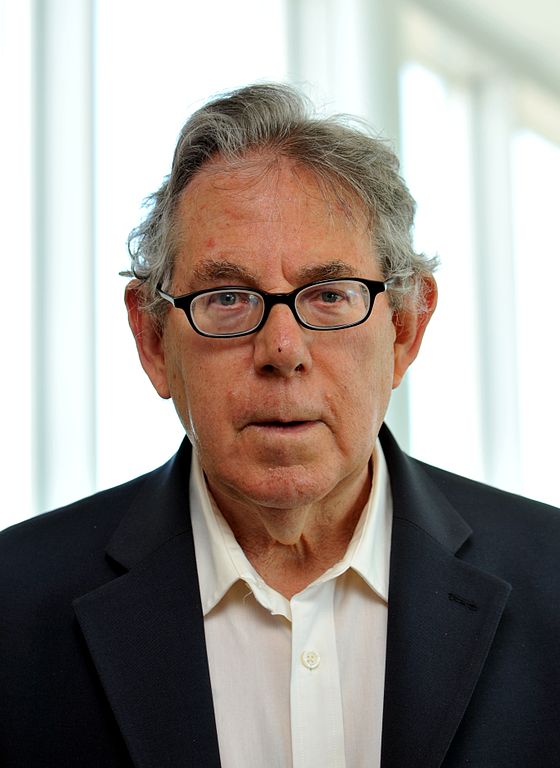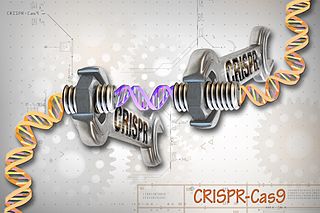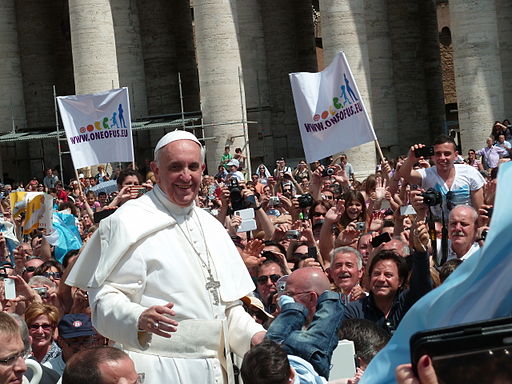The politics of nature are rapidly shifting. President Donald Trump rose to office amid cultural uneasiness about the pace and scope of social change. He has yet to signal, however, how he will address the changes rippling across life as natural systems are increasingly integrated within social systems. The phenomenon is so dramatic in scope that many scientists and observers see emerging a new epoch of geological history dominated by human influence – the “Anthropocene Epoch.”
In the Anthropocene, the political question is no longer how humans should use nature, but what nature itself will become. The Trump Administration needs a vocabulary that can help the public make sense of the responsibilities and risks, the values and opportunities, at stake in emerging technological capabilities to modify biological codes and planetary systems. The administration will be compelled to offer civic interpretation of “breakthroughs” and crises in the human relationship with nature. What should the president say to the public about the medical capability (likely within four years) to not only read the human genome but to edit out particular traits? How would the president present an initiative to combat the Zika virus by releasing genetically modified mosquitos?
Beyond the policy decisions and funding recommendations, leading in the Anthropocene entails developing capabilities of governance for actively directing evolutionary systems. Whether basic systems of life should be changed by humans is moot. The question now is: Whose ideas and initiatives will shape nature? The first year of the Trump Administration offers an opportunity to set out a framework that can get in front of dizzying changes in the human relation to nature and engage the new politics of nature across multiple practical domains. This essay explains why previous administrations have often appealed to “stewardship” to frame responsibilities to nature, and suggests strategies for expanding that concept to meet Anthropocene challenges during a Trump Administration.
Background
In the scope of evolutionary history the decisions made by this administration matter relatively little. The time periods relevant to state decisions do not even register in the geological epochs that mark the unfolding of planetary life. And yet, in a way probably without precedent in previous presidential administrations, basic processes of life have become entangled with political time. At both genetic and planetary scales, social paths taken during a single presidential administration will inscribe themselves in evolutionary systems. The power of technological civilization has compressed time, in a way, pulling long intervals of the evolutionary past and future into the present of democratic governance.
When scientific and cultural observers refer to this coupling of political and evolutionary time as the Anthropocene Epoch, the name suggests not only that Earth’s geological history is passing out of the Holocene, but that it is in fact passing out of “natural history” altogether and into a period marked by human influence in planetary systems. Within multiple systems basic to supporting life, humanity has rapidly become the most significant dynamic of change. Not only is most of Earth’s land surface terraformed by civilizations, the nitrogen content of waterways, the chemical composition of the atmosphere, the surface temperature of the planet, and the pH of the oceans are all now shaped by integration of ecological systems with social systems. Integration of social and biological systems is also intensifying at the genetic scale, as breakthrough efficiencies in gene editing have accelerated possibilities for precision medicine, genetic modification, and synthetic biology. Nature, including human nature, is being remade— and it is happening at the speed of political time.

Atmospheric chemist Paul Crutzen suggested that perhaps climate change and human impact are moving into Earth into a new epoch.
While there are many precedents for the idea that significant human impact on natural systems should be interpreted by a new historical frame (nearly a century ago the paleontologist and theologian Teilhard de Chardin anticipated that human history and evolutionary history would converge into a “noosphere,” allowing cultures to “grasp the tiller” of evolution), it was the atmospheric chemist Paul Crutzen’s proposal to imagine anthropogenic climate change from the perspective of a new epoch that has catalyzed public discourse. Whether or not Earth has officially left the Holocene and entered the Anthropocene is up to the Royal Geological Society, which is currently studying whether there is sufficient stratigraphic evidence to designate a new geological epoch. Yet whatever the Royal Society decides, the frame has already been adopted by many observers to depict a new cultural condition: pervasive anthropogenic influence through many natural systems and human responsibility for the future of nature.
The basic shift represented by the idea of the Anthropocene is that, instead of imagining societies as embedded in nature with obligations not to disrupt its balance, it now makes more sense to imagine nature as embedded in societies, which have increasing responsibility for what those natures become. The shift in frame has already transformed the politics of nature across multiple domains, most critically at two quite different scales: geoengineering and genetic engineering.
Geoengineering
The Anthropocene idea reframes political imagination of climate change. If humans are pervasively, even if unthinkingly, influencing planetary systems at a geological scale, it may not be feasible to withdraw the influence; perhaps it is time to instead engineer systems to function for political goals. Crutzen himself proposes that humanity should prepare to avoid adverse consequences of global warming by dispersing sulfur particles in the upper atmosphere to deflect incoming solar energy. Other proposals for climate engineering generally divide into those that would manage solar radiation and those that would enhance carbon capture. The basic argument for those proposals is that, since humans already influence the climate clumsily and dangerously, we should prepare technology to influence the climate system more precisely and responsibly.
Climate engineering is controversial because the prospect of technological solutions seems to shift focus from strengthening international emissions agreements. Moreover, they raise the prospect of nations deploying engineering strategies in ways that further their own geopolitical interests or threaten the interests of others. Criteria for responsible deployment of any scheme remain unclear. Yet, by appealing to the key idea of the Anthropocene, the controversy has already influenced climate politics. In Anthropocene conditions, any policy response to climate change (including the policy of doing nothing) must be seen as a form of managing the atmosphere, which is an unprecedented political undertaking and a new scale of human relationship to nature. Again, whether humans should change the climate is moot; the question is what ideas and initiatives will guide this new relation of humanity and planet.
Divisive political conflicts around climate change arise in part from the cultural uneasiness involved in coming to terms with such tectonic changes in the human relation to the Earth. What ideas and narratives make sense of that change? The administration should recognize that, above and beyond climate debates, the grand tension of this moment in history is how cultures reckon with the changed human relationship with nature. The ideas by which democratic societies make sense of their responsibility for planetary systems matter for how they will interpret changed relations to genetic systems.
Genetic engineering

A breakthrough technique known as CRISPR has made it cheap, efficient, and accurate to modify and edit DNA.
Genetic modification of nonhuman organisms has been possible since the 1970s, and commercially widespread since the 1990s, even though it remains controversial around the world. Until quite recently, however, modifying the genetic makeup of organisms has been costly and laborious, which has limited the extent of the technology. A breakthrough technique, using an element of a prokaryotic immune system known as CRISPR, has recently made modification so cheap, efficient, and accurate that almost any laboratory can edit DNA. Meanwhile, other initiatives are developing ways to construct genomes synthetically, in effect writing codes of life from a blank page.
There are three major areas of application. The most controversial is genomic medicine, sometimes called precision medicine. Made possible by the sequencing of the human genome, precision medicine will identify genetic sources of certain diseases and make modifications to correct or prevent disease. Some modifications—those affecting germ-line cells—would be inherited by offspring of the patient. Certain disease treatments, in other words, would change the DNA inherited by future generations.
To call attention to ethical responsibilities involved in editing human nature, and perhaps galvanized by headlines that Chinese researchers had already attempted germ-line editing in human embryos, in late 2015 U.S., British, and Chinese academies of science and medicine convened an “International Summit on Human Gene Editing.” Observing potential and risks, the summit noted that genetic editing raises the prospect of directing evolution by design. It holds the opportunity to improve, correct, and perhaps even escape inherited natures.
While there are many technical distinctions to be carefully made, the basic vocabulary used to describe what is going on is critical. What counts as a “mistake” in nature? Which genetic differences may be “corrected” or “improved”? And how do those interventions differ from optional “enhancement”? Are the lexical metaphors of “reading,” “editing, and “writing” human genomes the most appropriate way to imagine genetic engineering? Is “engineering”?
Those considerations of language and imagination carry over for the other two major applications of genetic editing. Genetic modification of nonhuman organisms, already common in agricultural staples, has become much easier with CRISPR-derived techniques. In the coming four years, we can expect hundreds of new kinds of organisms, constructed by humans for human goals. Some of those modifications offer techniques for intentionally altering ecosystems through genetically modifying certain organisms to function differently (e.g., modifying ticks so they cannot carry disease, or plants so they sequester more carbon).
Long-standing global distrust of genetically modified organisms demonstrates the mistake in deferring discussion of basic ideas to international summits and presidential commissions. The range of concerns expressed in public about these concerns is much more expansive than the near-term balance of benefits and risks typically discussed in official summits. Public debate includes concerns about inequality, relations between science and business, appropriate forms of agriculture and—most basically—how humans should relate to nature. Again, the administration needs a frame within which to interpret changing human roles in nature, for a public variously excited and uneasy about those prospects.
Stewardship

Stewardship is a moral concept used to frame man's responsibilities for nature.
Across previous presidential administrations, stewardship has been the moral concept most often used to frame responsibilities for nature. Popular for its acceptability to many political philosophies and its resonance with several religious traditions, the idea of stewardship connotes accountability for an inherited trust. Stewardship has been helpful to presidents navigating U.S. environmental debates because it implicitly authorizes use of nature while also suggesting that those uses should remain consistent with a responsibility to protect nature for the future.
Critics of stewardship object that the idea just cloaks environmental exploitation with moral dignity. They observe that its religious roots include Christian notions of human dominion and that its political resonance traces to ideals of colonial expansion, when some divines argued that stewardship mandated Europeans to take and settle land to make it as productive as possible. Critics worry that stewardship moralizes violence to land and people by making it seem that nature is perfected by wealth-producing mastery. Those liabilities may make the concept all the more attractive to the Trump administration.
However, Anthropocene conditions shift the basic frame of stewardship. As nature must be imagined less as an inherited trust and more as a designed product or an engineered system, stewardship can no longer be about protecting nature from human interference, nor even about perfecting nature through the pursuit of wealth. Stewardship now entails managing coupled human-natural systems. When scientists call for “active planetary stewardship,” they are calling for forward-looking design responsibility for basic systems of life. How to think about political goals in the midst of turbulent change to those systems? Here are three broad strategies.
Learn what makes systems resilient
If humans have made themselves responsible for evolutionary systems, one way to find criteria for managing them well is to learn lessons from what makes certain systems succeed or collapse. In particular, what permits systems, or emergent qualities of systems, to persist and succeed amid dramatic change?
For example, Simon Levin looks to the immune system as a model, and observes there qualities of adaptability, modularity, redundancy, and heterogeneity. They suggest there are likely functional analogies for those qualities across different kinds of systems, from biological to computational, ecological to economic, which could serve as initial criteria for how humans interact with evolutionary systems. These criteria become more significant as the scale of risk increases, as civilizations wager millennia of evolutionary accomplishment on development of new capacities.
The lexicon of resilience offers civic discussion ways of thinking about political involvement in complex systems. Notably, resilience thinking happens in many disciplines at multiple scales and is not strongly associated with a particular cultural worldview. The basic political goal here is security. Resilience could therefore offer a conceptual platform for funding initiatives to break academic research out of silos and organize collaborations across the academies, including with defense, infrastructure, and technology sectors.
Engage new threats to political freedom
The legacy of eugenics, endorsed heartily by the U.S. government a century ago, shadows confidence in genetic projects today. One fear of genomic medicine is that it seems an easy, profit- incentivized slide from insured parents having access to repair genetic mistakes to the affluent having access to private enhancement for their offspring. Biology could intensify social conflict. What will prevent inscription of wealth inequality and social prejudice into the human germ line?

Pope Francis has expressed concerns that the powerful will respond to global environmental problems in ways that increase their advantages over the poor and vulnerable.
That sort of fear bears on responses to planetary change as well. A major theme of Pope Francis’s encyclical on the environment, Laudato Si, was concern that the powerful will respond to global environmental problems in ways that increase their advantages over the poor and vulnerable. Technological management of the planet, he argued, would likely intensify inequality and inscribe injustice into natural systems.
In both cases, the concern is with the power of governmental policy to change conditions of life in ways that threaten human dignity and political freedom. And again, in both cases, withdrawing government from the politics of nature is no longer an option. The question is: Whose power will govern the changing conditions of life?
A stewardship frame can engage fears of naturalized inequality by directly taking up that question. If citizens fear that social systems are rewriting nature in ways that threaten freedom, an administration with populist roots should directly engage those fears with ideas and initiatives that focus on roles for sustaining democratic values within redesigned evolutionary systems.
Foster democratic deliberation
In the midst of rapid, unsettling changes across systems of life, an uncertain, pluralist society needs wide democratic deliberation over the values, goals, and priorities at stake in human management of natural systems. Leaving debate to designated representatives (scientists, ethicists, commissions) is likely to further alienate the public whose good is at stake in these changes, and possibly create distrust of the branches of science most crucial to understanding Anthropocene challenges.
An indispensable role for cultural arguments over various integrations of human and natural systems lies in testing metaphors and experimenting with language to develop cultural wisdom. “Engineering” is not the only or best way to imagine a human role with genomes and atmospheres; “cultivating” or “designing” or “repairing” or “protecting” will seem better to some citizens, and each would give rise to different initiatives for shaping nature.
The critical point here is that, for Anthropocene challenges, the politics of nature is also cultural policy. How people experience nature, including their own bodies and their reproductive relation to future generations, is uniquely at stake in this political time.